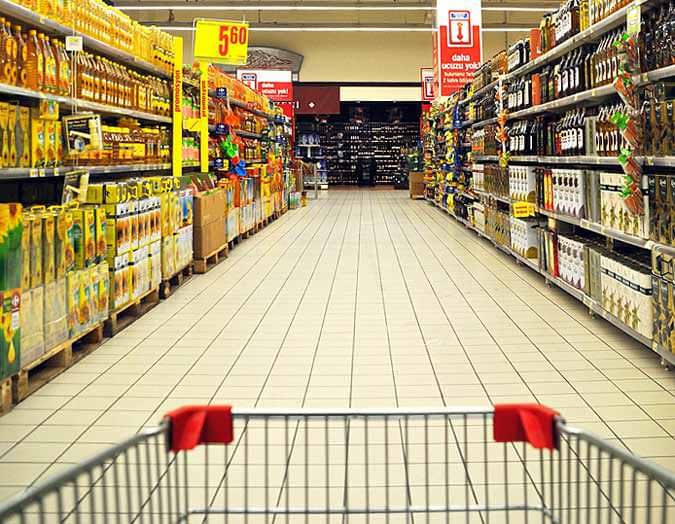
Deoleo, the world’s biggest olive oil company, says American consumers have helped offset a fall in its sales due to belt-tightening by Spanish and Italian households.
In its latest annual report and first quarter results for 2013, the Madrid-based company also revealed plans to follow last month’s opening of its own sales office in China with others in India, Malaysia and Colombia.
And it said the next harvest in Spain is in line to be an “extraordinarily good” one.
First quarter: sales down but profit up
In the information it released last week, Deoleo said the first three months of 2013 had been tough. The dire economic situations in Spain and Italy were having a big impact and had seen consumption fall.
However, despite a slide in sales, Deoleo logged an increase in its first quarter earnings.
Its net profit of €4.4 million ($5.7m) for January-March was well above the €700,000 it booked for the same quarter a year ago, though sales were down 4.4 percent to €198 million ($258m).
Its EBITDA (earnings before interest, tax, depreciation and amortization – a broad gauge of a company’s financial health) fell 22.6 percent to €15.1 million, and its EBITDA margin dropped from 9.4 percent in the first quarter of 2012 to 7.6 percent.
U.S. and Canada: strong and important markets
A regional breakdown shows North America made up nearly 55 percent of Deoleo’s total EBITDA in the first quarter of 2013, compared to just 24 percent in the same quarter last year and about 41 percent for 2012 in full.
Deoleo said the figures showed the “strength and importance” of this market.
International markets had reacted to rising prices with the usual slowdown in growth. “But, in the United States, olive oil consumption is up two percent in volume, according to Nielsen, despite the price increases. This shows that olive oil consumption is consolidating there,” it said in comments on its first quarter results.
Last year, Deoleo reported that its Bertolli brand had gained market share in North America while its Carapelli and Carbonell brands had held theirs. “Thanks to the ability to maintain premium prices, together with an optimization of operating costs, this region delivers the best EBITDA margin in the company group,” it said then.
Emerging and growth markets offsetting crisis in mature ones
Deoleo’s Carbonell brand enjoyed very strong growth last year in Brazil, the Bertolli brand was key to increased sales in Japan, and in India its stalwart was the Figaro label.
In the report on its latest quarter, titled “Bad times, good foundations”, Deoleo said opening its own sales offices in key emerging markets was part of its new international expansion strategy, hence the new premises in China and planned openings in India, Malaysia and Colombia.
“Our investment in emerging and growth markets will enable us to mitigate the effects of the crisis in mature ones,” it said.
Crisis boosts store brand sales in Spain
In Spain, an increase in sales tax and in the ex-mill price of olive oil late last year pushed up retail prices and made more shoppers switch to store brand olive oil. Store brands gained 10 points in volume to hold a 70 percent market share, though this has been clawed back a little of late.
Deoleo said its sales margins were reduced because it needed to offer sales promotions amid this intense competition, which was particularly fierce last month in Spain.
“The company’s promotional efforts, and the fact store brands price started to rise this month, will allow us to adapt our spread to keep per unit profit in the normal range,” it said.
“As we’ve seen in the past, sharp increases in prices cause an initial drop in consumption but later it recovers after consumers accept the new scenario, which is the situation that is now occurring.”
Deoleo’s managing director Jaime Carbó was reported in the Spanish press last week as estimating that olive oil consumption had slumped 6 – 7 percent in Spain in the first three months of the year. “Demand is very weak and a fall in consumption in Spain and Italy has a big impact at a global level,” he said.
Spain‘s olive trees ripe for return to high production
While Spain’s record production of more than 1.6 million tons in 2011/2012 wasn’t repeated this season, it “will no doubt be exceeded in future crop years,” Deoleo’s annual report said.
Indeed, after a long, dry cycle with little rainfall, last month was the wettest March in Spain since rainfall records began there in 1947. The consistent and well distributed rain, without torrential downpours, after a winter without any severe frosts, augured well for a successful coming season, it said.
“With the trees rested and recovery of the water reserves in the land, provided the trees blossom without any incidents in May, and the summer is no hotter than usual, the forthcoming seasons should be extraordinarily good.”
However, this past weekend Spain was struck by unseasonable weather with snowfall in various parts of the country, including in areas of olive oil epicenter Jaén, sparking concerns about potential impact on the all-important flowering stage.
Hojiblanca-Deoleo merger
Deoleo said its general shareholders meeting on May 27 is set to approve the company’s acquisition of the Hojiblanca extra virgin olive oil brand and Málaga bottling plant. Hojiblanca, the world’s biggest producer of extra virgin olive oil, will in turn raise its stake in Deoleo to 10.3 percent with the receipt of 109 million new shares each with a face value of €0.50 .






